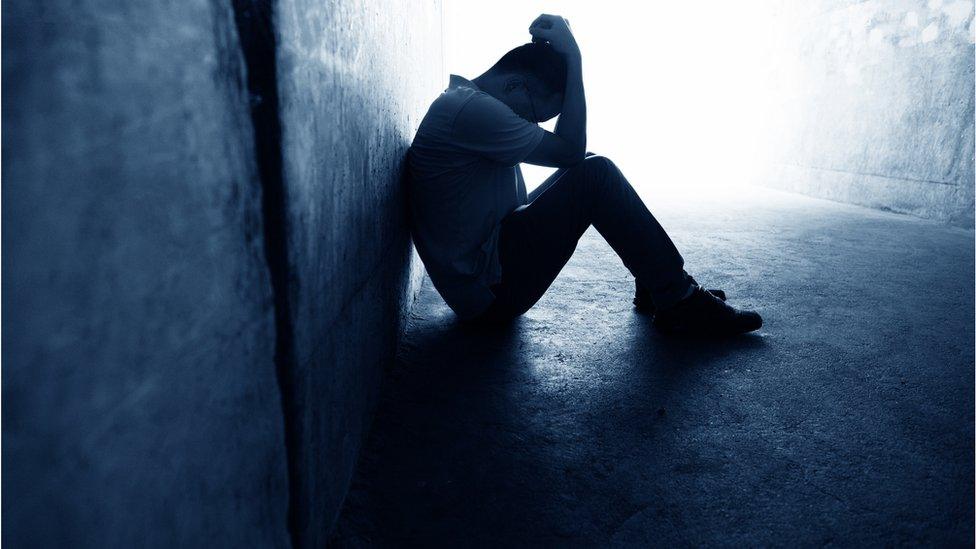Covid-19: Becoming a parent during a pandemic
- Published
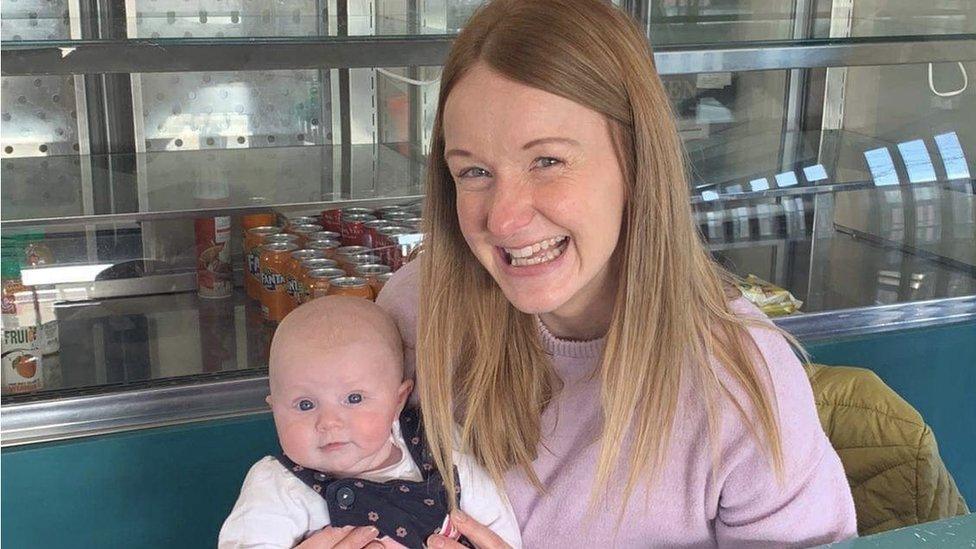
For Jenny Moore, maternity leave with baby Leanna is far from what she had expected
First-time mother Jenny Moore gave birth to her daughter, Leanna, in September.
Due to the pandemic, her maternity leave has not been what she expected and restrictions on people visiting her home have left her feeling particularly lonely.
"Hardly any of my friends or family have held her, let alone seen her," she said.
"I managed to get out twice when restrictions were lighter to have a sit-down coffee.
"But other than that, I haven't been far and have struggled with the isolation of being stuck at home."
'Sense of guilt'
Maternity leave for second-time mum Katherine Moore, from Lisburn, has also been very different to the experience she had with her son two years ago.
Katherine said she feels a "sense of guilt" that her daughter, Grace, who was born in November, is not having the same experiences her son enjoyed.
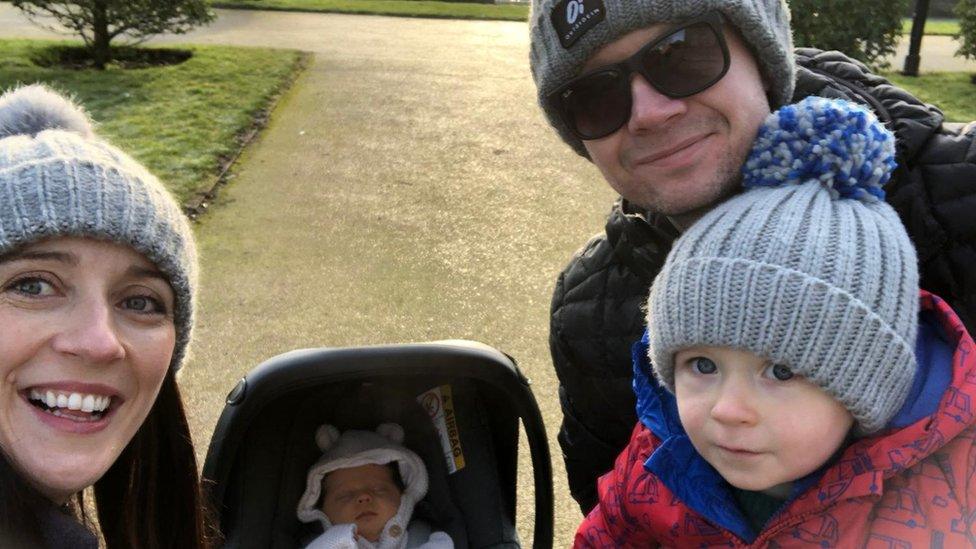
'It's not the same' - Katherine Moore with her husband Andrew and children, George and Grace
"In the early days the quiet was appreciated, but now, as we get more settled, it is quite lonely," she said.
"My daughter has hardly met anyone and we haven't been able to go to any classes."
Baby classes "a lifeline"
Northern Ireland's interim mental health champion has said she is "particularly worried" about the mental health of new mothers during the pandemic.
The lack of opportunities for social contact with other parents can lead to a real sense of isolation and despair, said Prof Siobhán O'Neill.
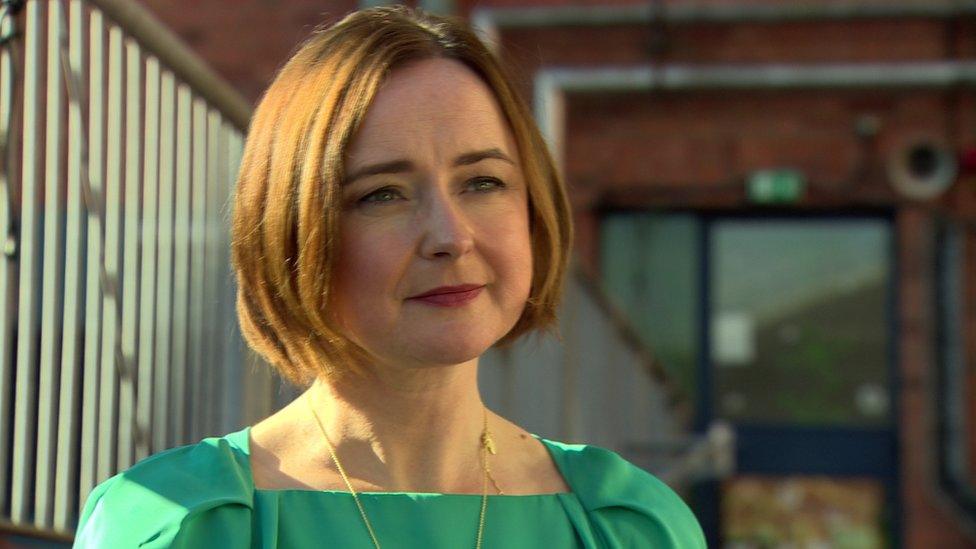
Prof O'Neill is very concerned at the impact on young mothers
"Rest assured that the lack of contact with others will not have an adverse impact on your baby per se," she told BBC News NI.
"Right now what they need is their parent or caregiver, and that relationship is literally their whole world.
"However, the mental health of the parent is crucial and it is so important that parents reach out if they are struggling and that we connect with the parents that we know to support them.
"Depression is very common in new parents, especially mothers, and in this pandemic we have seen that the rates have risen.
"I am a single parent and the parent and baby classes were a real lifeline for me," she said.
"New parents, especially single parents, should try and re-create these connections where possible and participate in virtual baby clubs online if they have the chance."
Post-natal depression is experienced by many parents after having a baby, affecting more than one in every 10 women within a year of giving birth. It can also affect fathers and partners.
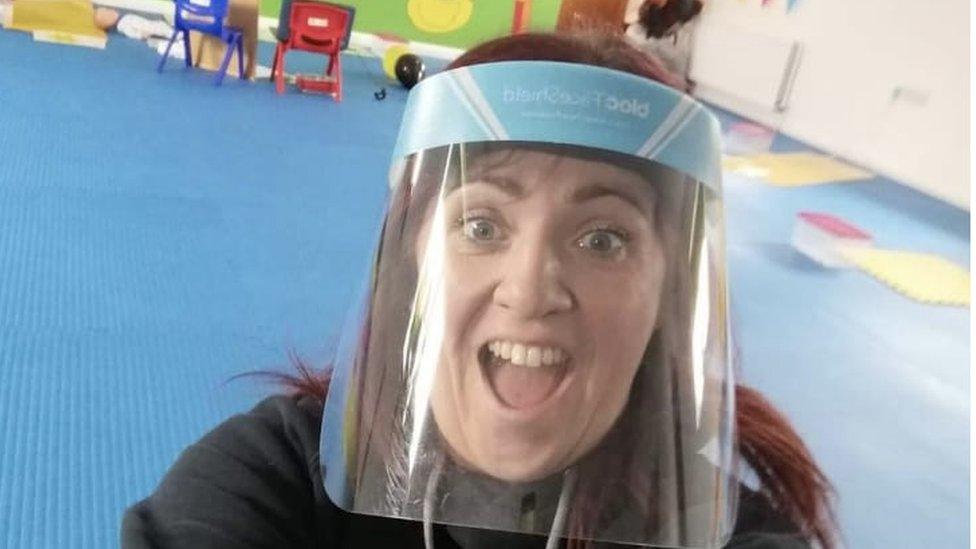
Tierna McClinton has been running virtual classes for new parents
Sure Start is a government-run programme targeted at parents and children under the age of four living in the most disadvantaged areas in NI.
Sure Start delivered many parent-baby and toddler sessions across NI before the pandemic and has adapted its programmes to provide support to 36,000 registered families in "new and innovative ways".
A spokesperson for Sure Start said: "Project workers have continued 'garden gate' home visits to provide support, play resources, food hampers and a listening ear to families across NI.
"However the in person support remains in focus and groups have run in 2020 where restrictions have permitted.
"Throughout even the current lockdown vulnerable families are still able to receive one-to-one in-person support subject to the necessary mitigations."
Tierna McClinton, who runs baby classes, has adapted her classes to run virtually since the beginning of the pandemic.
She said attending baby groups was important for enhancing mood and helping parents to share ideas, with many parents reporting to her that baby groups had supported their physical and mental well-being during the pandemic.
"Vital baby and toddler support groups go some way in helping parents who need extra reassurance during times when the health service is already stretched," she said.
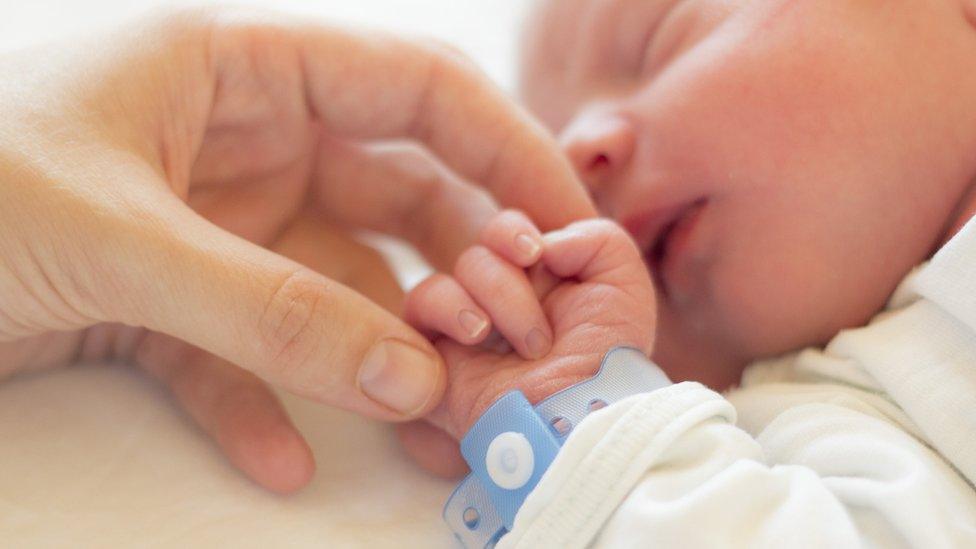
The lack of social interaction for new parents can lead to isolation and despair
'Keep a careful eye'
Prof O'Neill stressed there is support available "even in a pandemic".
"It remains so important that we stay apart and in our support bubbles to restrict the spread of the virus, illness would have a detrimental impact on our mental health too," she said.
"However, mothers should try to get out of the house every day, they should try to do some movement, walk, wheel, or even try to dance with their baby.
"It tells our body that we are ok, and will help us connect and find the joy in one of life's most beautiful gifts."
Prof O'Neill said "family members should keep a careful eye on the new mum and support her in whatever way they can, whether that's organising shopping, reminding her that she's doing a great job or being there for her in the small hours at the (or on the end of the phone) when she's tired or worried.
"This period can feel like relentless demanding work and if at all possible mothers should have breaks, so that they can rest, sleep and eat. Most of all keep asking how she is doing and encourage her to get support from the health visitor, midwife or GP if there are any concerns, or if the pressure feels overwhelming."
- Published24 June 2020
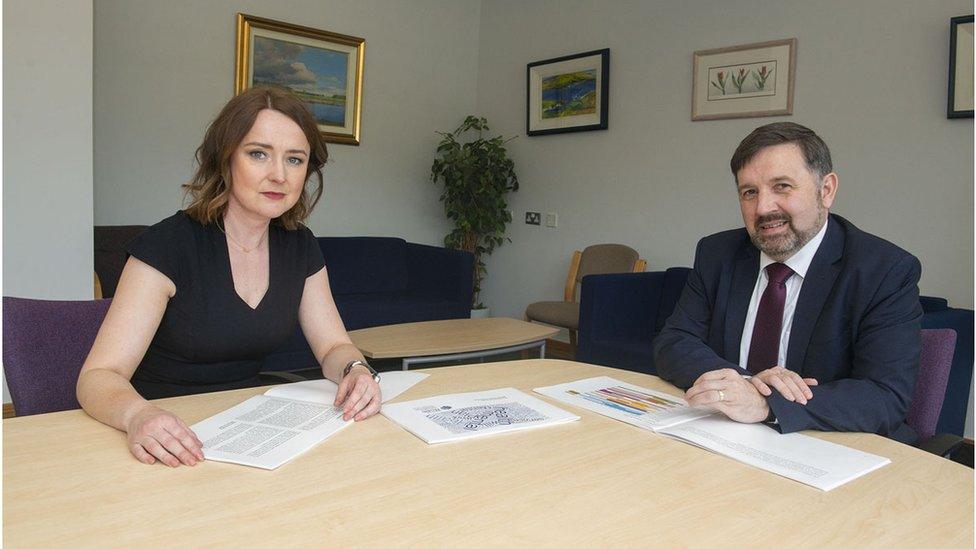
- Published21 May 2020
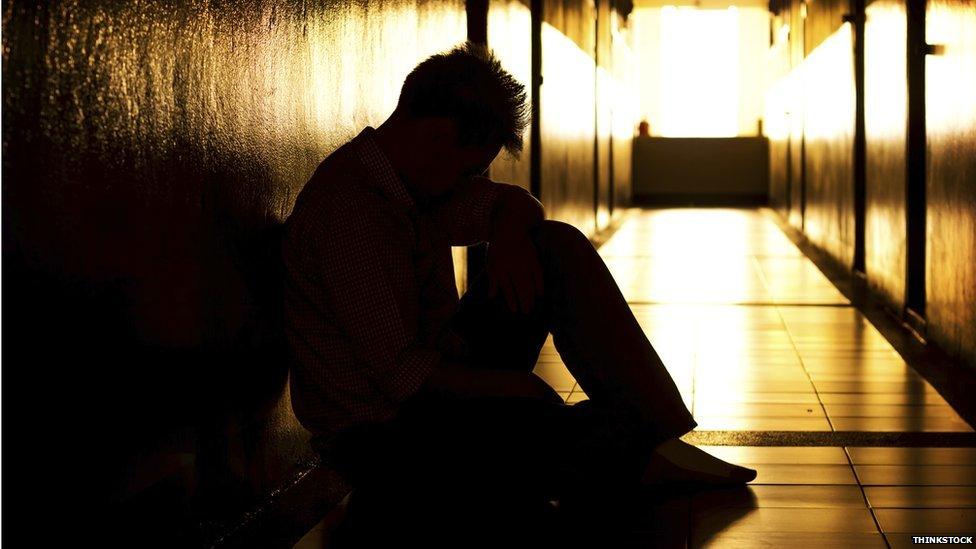
- Published21 January 2020
